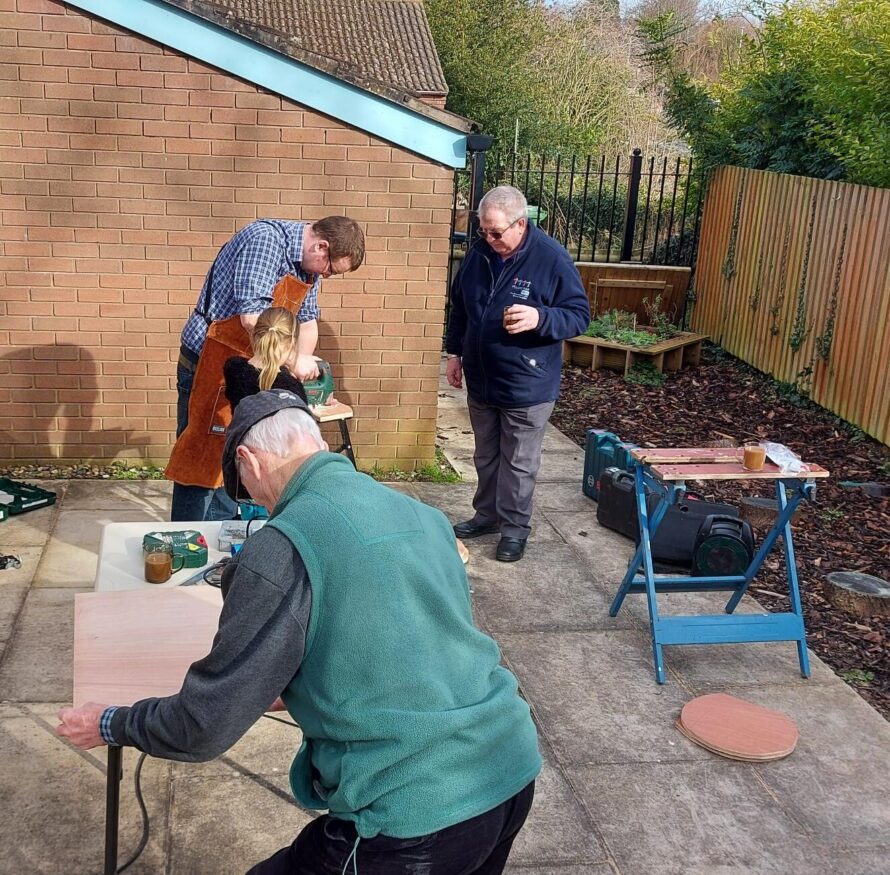Suggestions
Grounds Maintenance, Landscape Creation, Arboriculture, Sports Surfacing, Parks management, IOS Managing Safely Training, Ecology & Biodiversity, Grass cutting, Horticulture, Street Cleaning, Soft Landscaping, Hard Landscaping
Our Services
idverde provides a wide range of green services, including grounds maintenance, landscape creation, and advice services, to both private and public sectors across the UK.
Swift Boxes installed at All Saints Church in Wellington
idverde, RSPB, and church community volunteers came together to make ten swift boxes which have now been installed at All Saints Church in Wellington.
About the project
The swift box making day, which took place on the 26th of February, was organised to help the decline in the species population. Between 1969 and 2018, there was a 58% decline in swifts returning to the UK. The species, which was previously on the amber list, is now on the red list on the Birds of Conservation Concern report and is protected under The Wildlife and Countryside Act 1981.
The decline is due to the loss of their adopted nesting habitats of buildings, generally houses that pre-date 1944. It was more common for buildings to have gaps in roofs allowing access for swifts to build their nests. As modern building techniques and materials have become more widespread, it means the buildings they used are now sealed and inaccessible.

Swifts can be seen in the UK from May to August, after migrating from Africa where they spend their time during the winter period. The swift boxes were installed at All Saints Church on the 29th of March, ready for their arrival from May.
Additional to the new boxes, a swift calling system will be installed which will hopefully encourage swifts to occupy the new nesting spots. As swifts are colonial nesters, they are drawn to sites already in use. The calling device will play calls of swifts between May and August when swifts are most active and are known to form ‘screaming parties’ as they race around excitedly on the wing.
idverde is responsible for the grounds maintenance of All Saints, Wellington. The church is a prominent feature in the town, commanding a central position and used by the community for recreational use. All Saints is also an eco-church and demonstrates environmental engagement through worship and teachings, the land, and the community. The location of the swift boxes provides a great opportunity for the community to engage with the project and inspire them to look out for swifts. It can also educate about migration, threatened species and get people involved with monitoring swifts through RSPB’s swift mapper app.
If everything goes well, swifts could very well be seen using the new nesting site over the next few years!
Future plans
Between 150 & 200 swift boxes will be installed into church towers or on public/business buildings by the end of 2022. Already, there is great interest from other churches in the Telford area with a possible 60 boxes earmarked this year in this area alone.
What you can do to get involved
Swifts will come back to the same nest each year and prefer high, deep crevices to nest. If you would like to prepare for their arrival in the upcoming months, RSPB has put together a useful guide on creating your own swift box for the outside of your home.
It is also essential that we create the habitats for feeding as well as breeding. Swifts feed on the wing, therefore all of their food is airborne. Creating areas of longer grass, areas of wetlands, and forestry will ensure that the habitat is in place for invertebrates (flying insects, spiders, flies etc.), to power the migration of swifts and all birds across Europe, not to mention Africa where swifts spend seven months of their year.
Taking it further, you can consult or lobby your local housing association to encourage them to fit swift boxes to some houses within the area. Swift bricks are a great way to incorporate helping swifts on new build developments.
It is also vital that you do not disturb swifts under any circumstances are they are a protected species by law.
You can find out more about Swift Conservation here.
